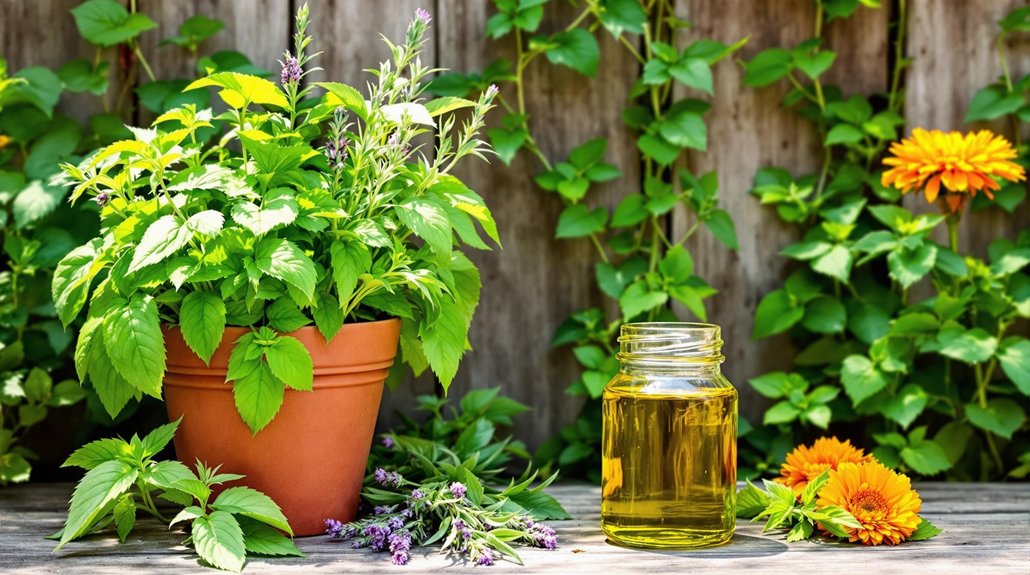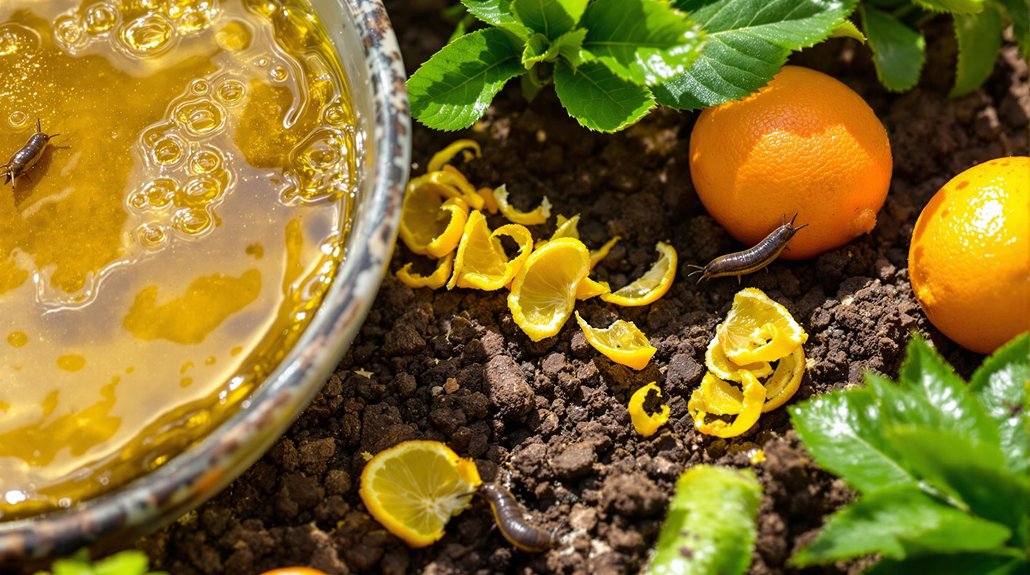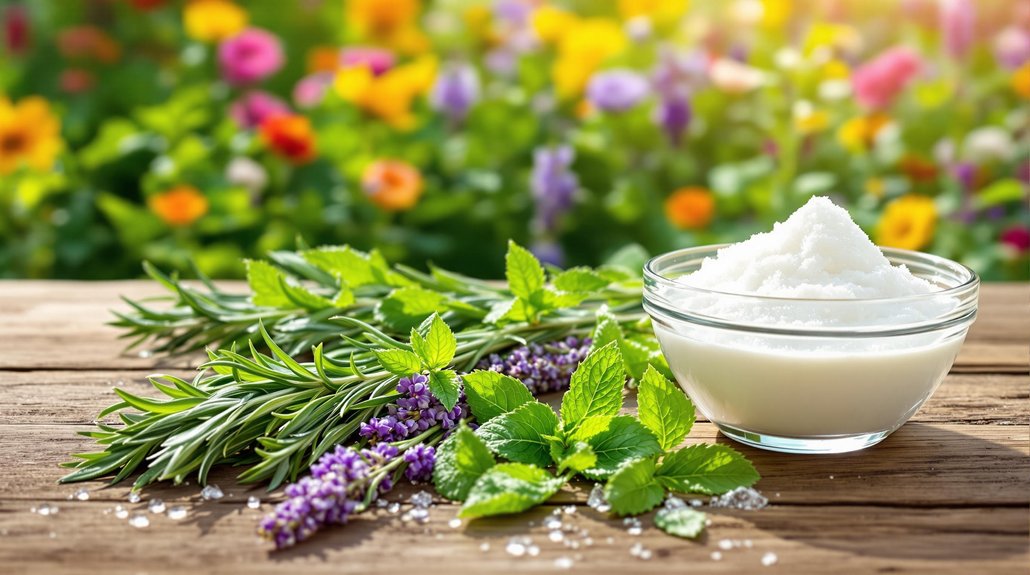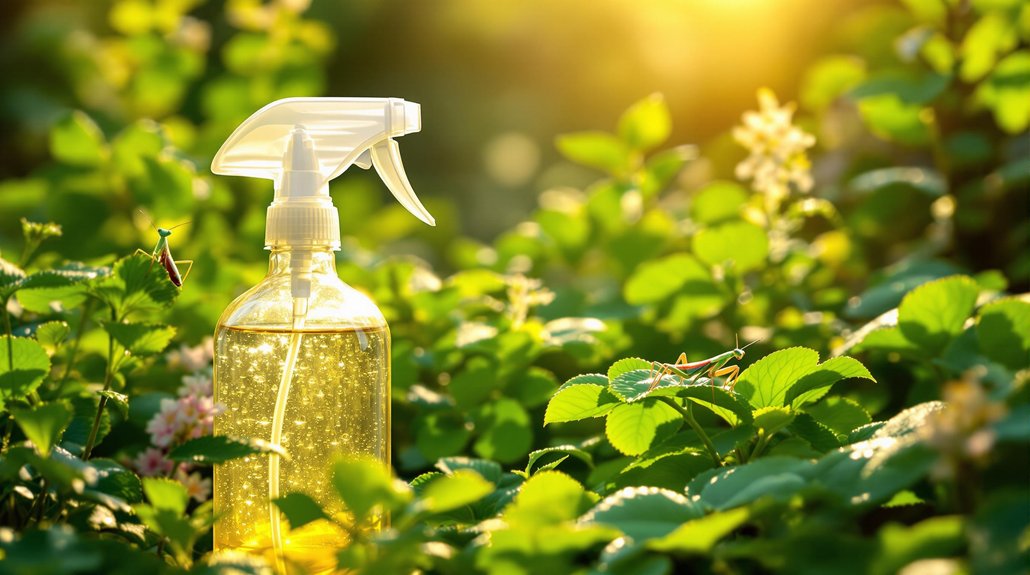The Best Natural Bug Repellents for SHTF: Herbs, Plants, and DIY Solutions

When the grid goes down and store shelves are empty, even small annoyances—like biting insects—can turn into major problems. In a true SHTF (S**t Hits The Fan) situation, bug sprays full of chemicals might be the last thing you want to rely on—or the first thing to run out.
The good news? Nature offers plenty of effective alternatives. From time-tested herbs to easy DIY blends, natural bug repellents can help you stay bite-free without synthetic ingredients. In this guide, we’ll cover the best natural solutions for keeping pests at bay when it really counts.
Tomato Leaf Spray for Aphid and Mite Control
If you're looking for a natural way to manage aphids and mites in your garden, consider using tomato leaf spray. This natural insect repellent harnesses compounds in tomato leaves, specifically alkaloids, to deter pests effectively.
To create it, soak 2 cups of chopped tomato leaves in 2 cups of water overnight, strain, and dilute with another 2 cups of water before application.
The beauty of this solution is that while it targets aphids and mites, it doesn't harm beneficial insects, ensuring sustainable pest management. Regular application can greatly reduce pest populations, promoting healthier plant growth.
Before using it widely, test a small area to check for any adverse reactions. It’s a simple yet powerful tool for garden pest control.
Garlic Oil Spray as a Safe Insect Repellent
Although chemical insect repellents can be effective, garlic oil spray offers a safer, natural alternative that’s easy to make at home.
By mixing minced garlic with mineral oil and letting it sit overnight, you create a potent base for a DIY bug spray. Dilute it with water and biodegradable dish soap to craft an effective solution that repels multiple insects, including mosquitoes, flies, and aphids.
The strong scent of garlic acts as a natural repellent, making it an excellent choice for organic gardening. Garlic's sulfur compounds provide a non-toxic shield against pests.
Apply the spray directly to plants and surrounding areas during cooler hours to prevent evaporation. Remember, regular reapplication is key, especially after rain, to maintain its effectiveness.
During emergencies, it is crucial to prioritize non-perishable items to reduce foodborne illness risk, as perishables left at room temperature over 2 hours pose health risks.
Hot Pepper Spray Against Mites and Whiteflies

While garlic oil spray offers a natural solution for repelling a broad range of insects, hot pepper spray specifically targets pests like mites and whiteflies. This homemade insect repellent uses capsaicin from hot pepper sauce to irritate pests' sensory receptors, making your plants unappealing. To create hot pepper spray, mix:
- 1 tablespoon of hot pepper sauce
- 1 tablespoon of biodegradable dish soap
- 1 quart of water
Let it sit overnight for ideal potency. Spray this natural solution directly onto affected plants, ensuring thorough coverage. Reapply weekly or after rain for sustained pest management. The great news? It's safe around beneficial insects and plants when used correctly, offering a sustainable option for your garden's health. Keep your garden thriving with this effective, eco-friendly approach!
Incorporating strategies from community cooking initiatives can also maximize the efficiency of resource use, reducing waste and ensuring a steady supply of ingredients for such natural solutions.
Soap Spray for Various Pest Management
Soap spray is a straightforward and effective natural pesticide you can use to combat different garden pests. By mixing 1 tablespoon of biodegradable dish soap per gallon of water, you can target soft-bodied insects like aphids and spider mites.
This solution disrupts their protective layer, leading to dehydration and death, making it a safe, eco-friendly option for pest control. Apply the soap spray early in the morning or late afternoon to protect beneficial insects and avoid sunlight damage. Always test on a small area initially to check for adverse reactions. Regular monitoring is essential, as the spray can wash away with rain or watering, necessitating reapplication for effective pest management.
It's important to have basic medical supplies available to handle any potential allergic reactions or skin irritations from using natural pesticides. Keep your garden thriving with this simple, natural approach.
Beer and Citrus Rinds for Slug Control

For those battling slug invasions in their gardens, beer and citrus rinds offer simple, natural solutions.
Beer serves as an effective slug control method by attracting slugs to a trap where they drown, making it a straightforward organic solution. Sink a container with beer into the soil, ensuring the rim is at ground level to prevent escape.
Citrus rinds not only attract but also collect slugs. Place peels from oranges, grapefruits, or lemons on the ground to lure and trap them underneath for easy disposal.
Moreover, the strong scent of citrus acts as a natural repellent, deterring slugs from your plants.
- Use beer to attract and trap slugs.
- Citrus rinds lure and collect slugs.
- Replace traps regularly for effectiveness.
Cinnamon and Cayenne Pepper for Ant Repellence
If you're looking for natural ways to keep ants at bay, cinnamon and cayenne pepper are two effective options.
Cinnamon disrupts their scent trails, making it harder for ants to navigate, while cayenne pepper acts as a strong irritant, deterring their presence.
To create a barrier, sprinkle powdered cinnamon around entry points and your garden. It won't harm plants or beneficial insects.
For a more targeted application, mix cayenne pepper with water to form a spray that can be applied directly where needed.
Besides ants, cayenne pepper can also deter other pests, like rodents.
Baking Soda and Milk for Fungal Prevention

When it comes to preventing fungal issues in your garden, baking soda and milk are two natural options that can work wonders.
Baking soda, a versatile natural ingredient, can be mixed with water and sprayed to prevent powdery mildew by creating an alkaline environment that wards off fungal diseases. Combine 1 tablespoon each of baking soda, vegetable oil, and dish soap in a gallon of water for an effective weekly spray.
Milk, mixed with water in a 40% to 60% ratio, supports beneficial microorganisms, strengthening plant health and resilience against fungal infections.
- Pest wave deterrent: Baking soda and milk are effective against common fungal threats.
- Organic gardening ally: Both are safe and natural.
- Test initially: Always try on a small area.
Vinegar and Boiling Water for Weed Elimination
As you've seen with baking soda and milk keeping your garden healthy, tackling weeds naturally is next on the timeline.
Vinegar stands out as an eco-friendly, natural alternative for eliminating those pesky weeds. Its acetic acid content acts as a non-selective herbicide, effectively desiccating plant tissues. Mix 1 gallon of vinegar with 1 cup of salt and a tablespoon of dish soap for stubborn weeds, and apply on a sunny day for best results.
Meanwhile, boiling water serves as a quick solution by cooking weeds in cracks and unwanted areas, killing them instantly.
Both methods avoid harmful chemicals, protecting your soil and promoting sustainable gardening practices. Adopt these techniques to keep your garden weed-free and thriving naturally.
Essential Oils and Natural Predators for Mosquito Control

Though mosquitoes can be a nuisance during warm months, you can naturally keep them at bay with crucial oils and natural predators. Important oils like citronella, lavender oil, and neem oil are excellent mosquito repellents. They offer a natural alternative to chemical products, and you can even make DIY solutions by mixing these oils with witch hazel.
To improve protection, you might consider:
- Planting mosquito-repelling herbs: Basil, mint, and lemongrass can create a natural barrier.
- Utilizing natural predators: Bats and certain birds consume large quantities of mosquitoes.
- Applying thyme oil: Proven to repel insects with a 91% protection rate against malarial mosquitoes.
These strategies not only repel mosquitoes but also add benefits to your garden and environment.
Diatomaceous Earth and Companion Planting for Overall Pest Management
While vital oils and natural predators play a role in mosquito control, diatomaceous earth and companion planting offer extensive solutions for managing a variety of pests in your garden.
Sprinkle diatomaceous earth around your plants to dehydrate and kill unwanted bugs naturally. Remember, you'll need to reapply it after rain or watering to maintain its effectiveness.
Combine this with companion planting, strategically placing plants like marigolds and garlic to repel bugs and attract beneficial insects. Herbs such as basil and mint not only repel specific pests but also improve the general health of your garden.




